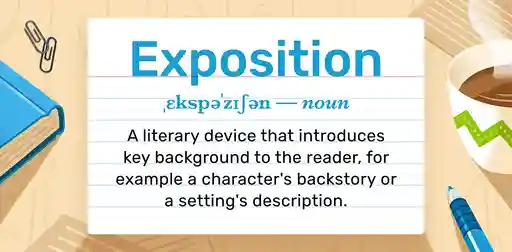Last updated on Jun 27, 2024
Title Capitalization Rules: Learn Which Words To Capitalize
About the author
Reedsy's editorial team is a diverse group of industry experts devoted to helping authors write and publish beautiful books.
More about the Reedsy Editorial Team →Martin Cavannagh
Head of Content at Reedsy, Martin has spent over eight years helping writers turn their ambitions into reality. As a voice in the indie publishing space, he has written for a number of outlets and spoken at conferences, including the 2024 Writers Summit at the London Book Fair.
View profile →Like many aspects of the English language, title capitalization rules can seem confusing and unintuitive. While the words that are (and are not) capitalized in a title aren’t always consistent, it’s really not as complicated as you might think.
Whether you’re figuring out what to call your novel, writing a headline for a blog post or article, or referring to a movie, song, or other published work, you’ll need to follow standard title capitalization rules. To help you along, let’s break down the basic rules and explain some exceptions.
These are the three title capitalization rules you’ll need to remember:
- Capitalize the first and last words of a title
- Capitalize verbs, pronouns, nouns, adjectives, and adverbs
- Don’t capitalize articles, coordinating conjunctions, or prepositions
1. Capitalize the first and last words of a title
The simplest rule you can follow with complete certainty is this: the first and last words of a title are always capitalized. It doesn’t matter what length the title is or what grammatical role the word plays. From the humble article “the” to longer nouns like “tyrannosaurus,” you’re 100% safe capitalizing the first and last word.
Example: Andy Williams’s 1966 hit single, “Music to Watch Girls By”
All style guides agree on this rule, and it’s because it just makes sense. By capitalizing the first and last words, you create a visual mark that shows the reader where the title begins and ends. Even if it’s used within a longer sentence, it can’t be confused with the text surrounding it.
💡 Note: When words are capitalized to form a title, their format is called “title case” or “headline case.” This is in contrast to “sentence case,” which is what you’ll see in this very paragraph.

FREE RESOURCE
Book Title Checklist
Create a title that stands out — and sells.
Capitalize the first word of subtitles, too
The rule for subtitles is very simple: the subtitle’s first word is also always capitalized, with no exceptions. Subtitles, written after a colon, are especially common in factual and academic works.
Example: Sandra Gilbert and Susan Gubar’s classic work of feminist literary criticism, “The Madwoman in the Attic: The Woman Writer and the Nineteenth-Century Literary Imagination.”
If this title was written in sentence case, the first word after the colon would not normally be capitalized. And if we were following rule number 3 (spoiler alert), the word “the” would be in lowercase.
If you’re worried about your institution’s style guide of choice, you can sigh with relief. Capitalizing the first word of a subtitle is one of those rules where APA, MLA, Chicago, and AP style guides are in beautiful, unanimous agreement.
This is not the only rule they agree on — the next one is also universal.
2. Capitalize verbs, pronouns, nouns, adjectives, and adverbs
Many common parts of speech are always capitalized in a title. Let’s take a quick look at them, one by one.
Verbs
The ‘action words’ of language, verbs are capitalized in every style guide. This also applies to phrasal verbs, where a verb and a preposition are used together, like “Get Up,” “Stand Up,” “Let Go,” and “Carry Out.”
A commonly asked question is whether the word “is” needs to be capitalized. “Is” and its cousins (“I am,” “you are,” etc.) are all conjugated forms of the verb “to be,” so the answer is yes. The same applies to the verb “do” and its variations “did” and “does.”

Here are a few examples of book titles that include verbs:
- This Is How You Lose the Time War by Amal El-Mohtar and Max Gladstone
- Where'd You Go, Bernadette by Maria Semple
- Don’t Cry for Me by Daniel Black
- I'll Tell You in Person by Chloe Caldwell
- Do You Want to Start a Scandal by Tessa Dare
- History Is All You Left Me by Adam Silvera
Pronouns
All style guides agree on capitalizing pronouns in titles. If you’re a native speaker, it’s possible you assume the term simply refers to “he,” “she,” “they,” and “his,” “hers,” and “theirs.” These are pronouns indeed, but there are many more types.
| Subject pronouns | Object pronouns | Possessive pronouns | Reflexive pronouns |
| I | Me | Mine | Myself |
| You | You | Yours | Yourself |
| She/he/it | Her/him/it | Hers/his/not used | Herself/himself/itself |
| We | Us | Ours | Ourselves |
| You | You | Yours | Yourselves |
| They | Them | Theirs | Themselves |
We won’t dwell (no one likes a grammar lesson), but to learn more about further types of pronouns, like relative, indefinite, demonstrative, or interrogative pronouns, you can check out Thesaurus.com’s entry on pronoun types. Fun fact: words like “someone,” “whenever,” “whose,” and “whom” are pronouns, too. Hopefully, this knowledge will come in handy when you next capitalize a tricky title.

Here are a few examples of book titles with pronouns:
- Roll of Thunder, Hear My Cry by Mildred D. Taylor
- Guess How Much I Love You by Sam McBratney
- For Whom the Bell Tolls by Ernest Hemingway
- Their Eyes Were Watching God by Zora Neale Hurston
- Go Tell It on the Mountain by James Baldwin
- Somewhere Safe with Somebody Good by Jan Karon
If you do happen to like grammar lessons, however, check out this article about the Oxford comma to learn more about when and how to use it like a pro.
Nouns and adjectives
You already know these ones, so we won’t patronize you. They’re also straightforward when it comes to capitalization: nouns and adjectives are capitalized in all style guides. Wonderful, right?
Let’s look at a few title examples that feature nouns:
- I Know Why the Caged Bird Sings by Maya Angelou
- How the García Girls Lost Their Accents by Julia Alvarez
- If on a Winter’s Night a Traveler by Italo Calvino
- Diary of a Young Naturalist by Dara McAnulty
And some book titles that capitalize adjectives:
- In Cold Blood by Truman Capote
- A Cavern of Black Ice by J. V. Jones
- Understanding Comics: The Invisible Art by Scott McCloud
- The Curious Incident of the Dog in the Night-Time by Mark Haddon
Adverbs
You may know adverbs as words that end in -ly. They describe the way or manner in which something is done or happens. Just don’t forget that adverbs of manner aren’t the only type of adverb.
If your title includes any of the words below, you’re dealing with adverbs of frequency, time, place, or degree:
| Adverbs of time | Adverbs of frequency | Adverbs of place | Adverbs of degree |
|
|
|
|
You don’t need to remember what category each adverb falls under — you just need to be able to recognize them as an adverb, since all adverbs are capitalized across all style guides.
Here are a few titles that feature adverbs, whether they end in -ly or not:
- “Isla and the Happily Ever After” by Stephanie Perkins
- “A Fairly Honourable Defeat” by Iris Murdoch
- “Tomorrow, and Tomorrow, and Tomorrow” by Gabrielle Zevin
- “A Story Lately Told: Coming of Age in Ireland, London, and New York” by Anjelica Huston
So far, we’ve looked at the two major rules where all style guides agree: capitalizing the first and final words of a title, as well as any “principal” or important words, like nouns, pronouns, adjectives, and adverbs. The next rule is where it gets a little bit more complicated.
Free course: How to self-edit like a pro
Rid your manuscript of the most common writing mistakes with this 10-day online course. Get started now.
3. Don’t capitalize articles, coordinating conjunctions, or prepositions
Unless you’re working with a style guide that says otherwise (or if they’re the first or final word in a title), the following types of words are not capitalized:
- Articles — the tiny words that come before nouns to indicate whether it’s a general concept or a particular, specific thing, e.g., “the garden” vs. “a garden”
- Prepositions — words that precede nouns to show direction or place, or to establish a relationship between two things, e.g., “opposite the library,” “next to the cat”
- Coordinating conjunctions — words that link two parts of a sentence that can stand on their own, e.g., “I was tired. Alice went to bed” vs. “I was tired and Alice went to bed.”
Here are the words that fall under these categories:
| Articles | Coordinating conjunctions | Prespositions (list not exhaustive) |
| a, an, the | for, and, nor, but, or, yet, so | above, across, against, along, among, around, at, before, behind, below, beneath, beside, between, by, down, from, in, into, near, of, off, on, to, toward, under, upon, with, within, etc. |
📚For more examples and information on prepositions, head to this page by the University of Ottawa.
Here are a few book titles that do not capitalize articles, coordinating conjunctions, and prepositions (unless they are the first or last words of the title):
- In Search of Lost Time by Marcel Proust
- Crime and Punishment by Fyodor Dostoyevsky
- The Catcher in the Rye by J. D. Salinger
- The Portrait of a Lady by Henry James
- Again, but Better by Christine Riccio
Subordinating conjunctions
Subordinating conjunctions, on the other hand, are capitalized. These words introduce a new part to the sentence dependent on the main sentence, or clause. Subordinating conjunctions include: if, since, as, when, although, while, after, before, until, because.
Because titles are not typically multi-clause sentences, it’s harder to intuit which group a conjunction belongs to. The simplest way to know when to capitalize conjunctions is to just remember which are coordinating and which subordinating.
Subordinating conjunctions do get capitalized, as in these title examples:
- Things Have Gotten Worse Since We Last Spoke by Eric LaRocca
- As Good As Dead by Holly Jackson
- What If?: Serious Scientific Answers to Absurd Hypothetical Questions by Randall Munroe
- Live Right and Find Happiness (Although Beer Is Much Faster): Life Lessons and Other Ravings by Dave Barry
4. When in doubt, refer to your style guide
If you're writing for a specific institution, keep their style guide bookmarked. For your convenience, here's what the four most commonly used style guides in North America require when it comes to capitalizing titles correctly:
Chicago Manual of Style
Capitalize:
- The first and last words of a title
- Verbs, pronouns, nouns, adjectives, and adverbs
- Subordinating conjunctions
Don’t capitalize:
- Articles, prepositions of any length, and coordinating conjunctions
- “To,” if used in an infinitive (e.g., “Failure to Launch”)
Modern Languages Association (MLA) Handbook
Capitalize:
- The first and last words of a title
- Verbs, pronouns, nouns, adjectives, and adverbs
- Subordinating conjunctions
Don’t capitalize:
- Articles, prepositions of any length, and coordinating conjunctions
- “To,” if used in an infinitive (e.g., “Failure to Launch”)
American Psychological Association (APA) Publication Manual
Capitalize:
- The first and last words of a title
- Verbs, pronouns, nouns, adjectives, and adverbs
- Words that consist of more than four letters, even conjunctions and prepositions
Don’t capitalize:
- Words shorter than four letters
- “To,” if used in an infinitive (e.g., “Failure to Launch”)
The Associated Press (AP) Stylebook
Capitalize:
- The first and last words of a title
- Verbs, pronouns, nouns, adjectives, and adverbs
- Subordinating conjunctions
- Words that consist of more than four letters, even conjunctions and prepositions
- “To,” if used in an infinitive (e.g., “Failure To Launch”)
Don’t capitalize:
- Articles and prepositions shorter than four letters
- Coordinating conjunctions
You’ll notice that the first two, Chicago and MLA, are the same — whereas AP and APA share an enthusiasm for capitalizing words longer than four letters.
Now compare these book titles:
| AP and APA | Chicago and MLA |
|
|
See the difference?
- Chicago and MLA don’t capitalize “along” because it’s a preposition.
- AP and APA do capitalize it because it’s longer than four letters long.
- “For” is a coordinating conjunction (so lowercase for Chicago and MLA) and not long enough to be capitalized in AP and APA.
- All four style guides capitalize the first and last words of the title, as well as the first word of the subtitle.

🎯 Want to test yourself? Head over to our book title generator and give it a whirl. Write down what titles you’re given and then ask yourself how they’d be formatted for each style guide.
Those are all the rules, so you can go ahead and capitalize your title. Beyond your title, if you’ve got a whole manuscript in need of polishing, consider hiring a copy editor to take care of the finer details.
Hire an expert copy editor
Claire R.
Available to hire
Reliable and versatile proofreader and copy editor with a passion for all things Sci-Fi and Dickens.
Amy B.
Available to hire
Desk Editor with 5+ years in the industry, currently at Pan Macmillan. Send me a message - I’m happy to chat and see if I’m right for you!
Jamie T.
Available to hire
Experienced copy editor and proofreader who has enhanced hundreds of novels, academic works, textbooks, viewbooks, art books, and more.
If you want to expand your knowledge of niche linguistic matters even further, head over to the world of punctuation with our post on using hyphens and dashes correctly. Just don’t forget your linguist geek hat.








